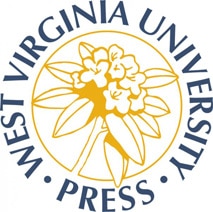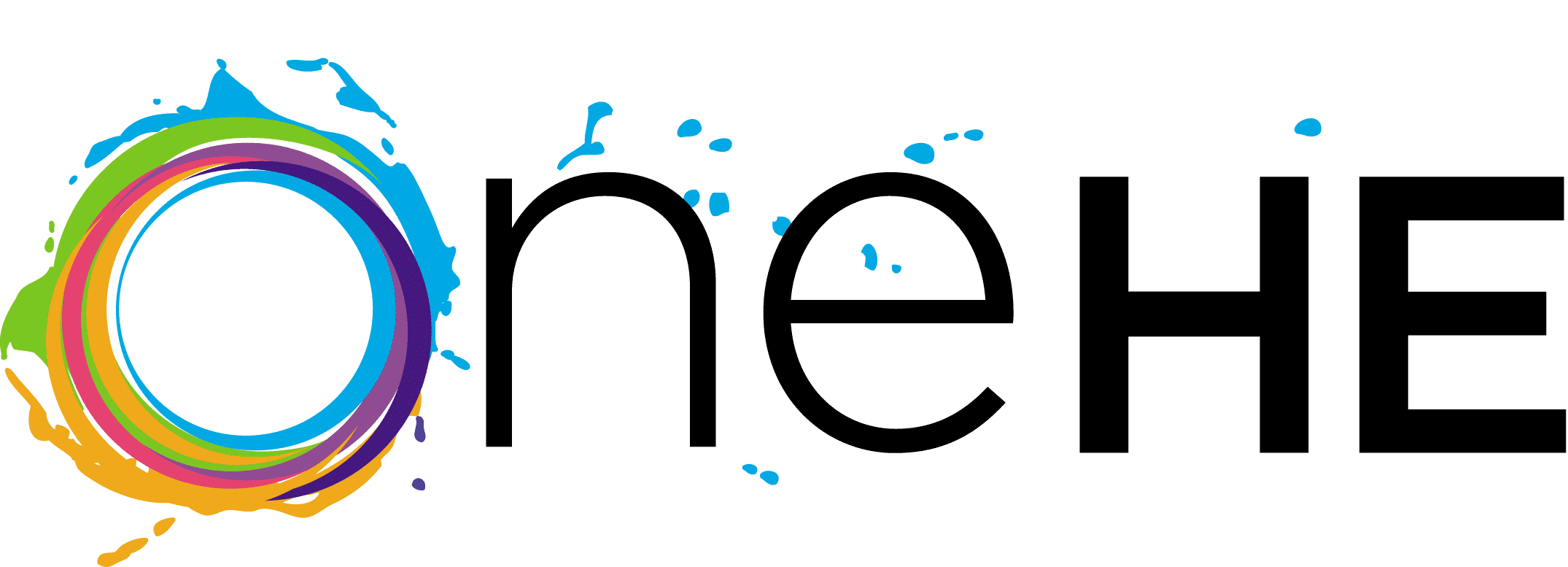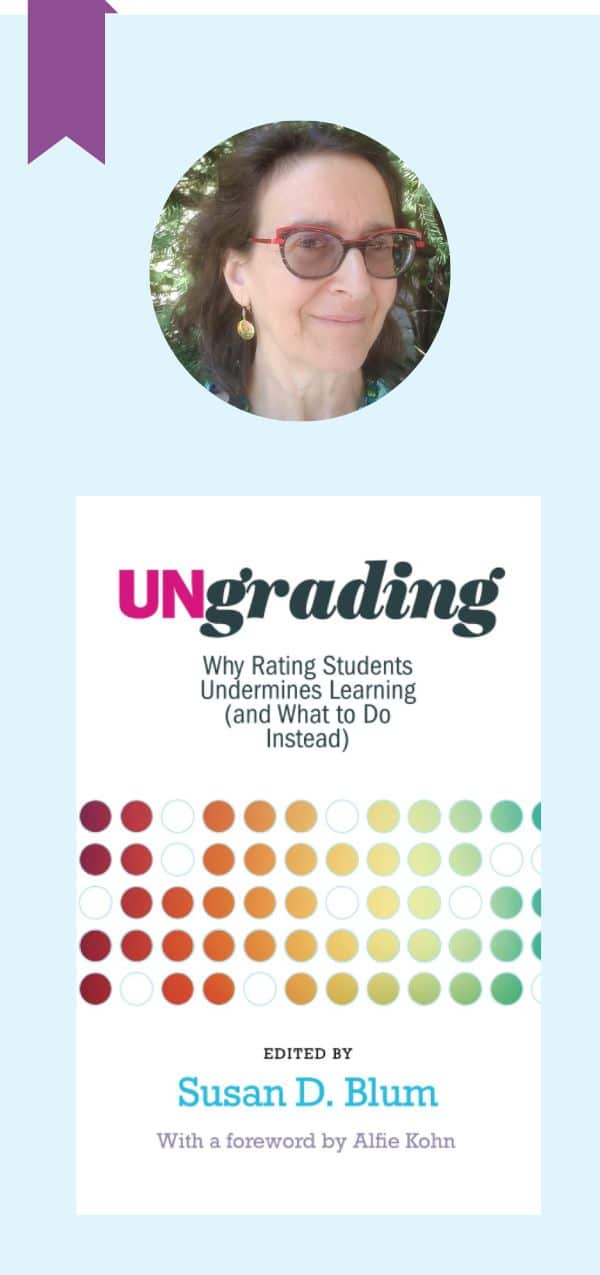‘Ungrading’: An Interview with Susan D. Blum

Susan D. Blum

James M. Lang

My Word!: Plagiarism and College Culture, which was an insightful analysis of the many factors that contribute to student plagiarism. I became an immediate fan of Susan’s work, and was even more impressed by her next book, I Love Learning; I Hate School: An Anthropology of College. Both books offered critiques of the systematic barriers that stood in the way of deep learning in higher education. Susan expanded this critique of learning barriers in her most recent book, Ungrading: Why Grading Undermines Student Learning (And What to Do Instead). When she first proposed this title for our Teaching and Learning in Higher Education series at West Virginia University Press, I was initially skeptical. Edited collections of essays, like the one she was proposing, typically do not attract the level of attention given to single-authored books. But Susan put together an all-star cast of contributors, all of whom described fascinating ways in which they had moved away from traditional grading practices. To our delight, Ungrading has become the surprise bestseller of the series. You can learn more below about the idea of ungrading, and about how she brought such a successful book to life.
James M. Lang, Ph.D.

The interview
1. Your book has been an amazing success story for you, your contributors, West Virginia University Press, and all the advocates of alternative grading practices. Why do you think it struck such a chord with teachers?
There are two answers to this, I think: The first was the timing: the book appeared in Fall 2020, and publicity began in earnest I shamelessly promoted it myself on social media in the Spring and Summer of 2020. This means that as so many instructors were trying to focus on pedagogy and what to retain or change as nearly all institutions went remote at least temporarily, our book appeared with some very strong and clear ideas about potential changes. The second answer has to do with a quiet change that has been brewing for quite some time. The Scholarship of Teaching and Learning and the heroic work being done in all the centers for teaching and learning have shown some of the harmful effects and ineffectiveness of conventional pedagogical practices in contrast to active learning, student-centered learning, High-Impact Practices, and more. Our book builds on and extends some of the preexisting conversations.
2. Can you tell readers how it came together both as a book idea and then in terms of connecting with collaborators?
I’d written two books about higher education and I’d had a personal transformation in my own pedagogy, based on what I’d learned about student motivation and how people learn. When in 2016 I decided to go fully ungraded-until-the-end-of-the-semester, having taken steps in that direction for nearly a decade, I waited to see how it went, and then I wrote about it for Inside Higher Ed. I realized that there was really nothing published (that I could find) in scholarly books about it, so I thought I’d do a side project and assemble some writing from practitioners, in part to provideg evidence that faculty in precarious employment conditions could point to if they wanted to try ungrading. Then I went about contacting some of the people I knew from Twitter and blogging who were already practicing various forms of ungrading. I tried to find people in K12 and higher education, and in STEM plus social sciences and humanities. I wanted people in a range of institutions, from community colleges and regional state schools and elite institutions. Once I had commitment from most of the contributors, I contacted you and Derek Krissoff at West Virginia University Press, which was beginning your series on Teaching and Learning in Higher Education. At the time you had published only four or so volumes, but were clearly going to be a powerhouse. They were focused on higher education and at the time were avoiding edited volumes, but I was committed to including the K12 voices, because they’d been some of the pioneers of “going gradeless.” And you took a chance on us! (The side project has expanded, needless to say!)
3. If readers are ungrading-curious, are there some simple ways to experiment with ungrading, even if they have already planned their fall courses?
I think there are two things instructors can do to move toward ungrading. One is to include all the active-learning techniques possible, to focus on the amazement and engagement that comes when something compelling occurs in the context of a class the kinds of things you suggest in Small Teaching or Cathy Davidson and Christina Katopodis write about in The New College Classroom. These activities are generally ungraded which we can point out to our students, and emphasize their natural curiosity and capability as learners, who can be motivated intrinsically by the desire to learn. The other thing to do is to include reflection, self-assessment, or self-evaluation, to de-center the judgment of the instructor and remind students that they need to generate, and can generate their own standards and take pride in their work. I recommend a single-point rubric, not a grades-with-different-labels framework, if you want to use a rubric. My own reflections ask what the students were aiming to accomplish, what went well and what needs improvement, and what they need help with. Because they’re not being graded, I find them quite willing to admit to imperfection which is beneficial for mental health and for genuine learning.
4. Some faculty might feel constrained by institutional restraints on their ability to change grading practices (for example, non-tenure track or junior faculty). How can individuals advocate for themselves or for ungrading practices on their campuses?
This consideration was one of the motivations for assembling the book: I wanted colleagues to be able to point to this, published by an academic press, and be able to say, “Look! I didn’t just make this up! There are respectable others doing it!” During the two years since the book’s publication, ungrading is no longer the scandalous, shocking set of practices that it was so recently. Many teaching and learning centers have organized book groups, talks, and workshops about it. But I also recognize the real power imbalances on campuses; my own privileges gave me some security as I set out to do something that felt risky. I encourage everyone to do three things: Find a buddy, someone at your level you can be honest with as you try new things; find a champion, someone with more institutional security who can vouch for you (often the teaching and learning folks); and keep evidence of student learning so you can demonstrate that even without conventional measure, there is no doubt that students have learned well. You may also want to do a fourth thing: collect student testimonials about their experience in this sort of class. From all accounts, as well as my own experience, students recognize that a focus on learning instead of a focus on grades is very positive.
5. Are you available to give virtual or on-campus lectures and presentations? How can readers connect with you on social media, or reach out to you for more information?
Yes! I’ve given quite a large number of talks, presentations, and workshops during the past two years. Nearly all have been virtual. I’m slowly adding just a few on-campus events, but I’m also trying not to wear myself out through too much travel. But anyone who wants to contact me about a potential event can email me: [email protected]. I probably should have someone help me with this, but I handle my own scheduling, so we can talk about it!
Excerpt from the book
Humans, in recent memory, invented a way of looking at students learning. We in the United States call it grading; in Canada, the United Kingdom, and elsewhere, they distinguish between marking on particular assignments and final grading. Though grading seems natural, inevitable, a part of the very fabric of school, it isn’t. It was created at a certain moment, for certain reasons not entirely well thought out, and then became embedded in the structures of schools for most students.
But because we invented it, we can uninvent it. We can remove it.
And many of us believe we should.
There is a growing movement at this end of the second decade of the twenty-first century. I call it ungrading. Others call it de-grading or going gradeless. Though the destination tends to be generally the same, there is variation in the routes, the reasons, the contexts, and the specific ways various individuals at different levels of education enact our changes. This book is an effort to assemble some of the practices faculty have devised to question the apparent centrality of grades as an unchanging, unyielding fact of schooling (according to both teachers and students).
After I published a short article online in 2017 called Ungrading: The Significant Learning Benefits of Getting Rid of Grades, I was invited to a secret Facebook group called Teachers Going Gradeless, TG2. There was already a group that Starr Sackstein had been part of called Teachers Throwing Out Grades. Since then I’ve discovered more and more evidence of faculty going gradeless most at the secondary (middle and high school) level, but increasingly in higher education. Much of the material in this book is available as blog posts, podcasts, Twitter threads, and interviews. Little has been published in print or peer-reviewed formats. We’ve retained some of the flavor of those posts, to keep the sense of energy and conversation of each author.
Almost everyone I approached was delighted to contribute to this book (those who declined had other commitments) and excited to push the conversation into a broader public realm. We believe that putting these pieces together produces a picture of what is possible a picture greater than any individual alone can produce.
All the authors included in this book are troubled by some of the consequences of and reasons for grades. It could be because grading dehumanizes and flattens nuances in students’ practices and understanding. It could be the mechanistic approach, derived from the factory model of education, that we wish to challenge. It could be that we are concerned about the fixation on grades, which leads to cheating, corner cutting, gaming the system, and a misplaced focus on accumulating points rather than on learning. It could be that people wish to be more responsive to individuals in the classroom, to be more informative about feedback, to join students in a collective effort that isn’t primarily focused on assessment, evaluation, sorting, ranking. It could be that people are rebelling against audit culture, or what Jerry Z. Muller in his book The Tyranny of Metrics calls metric fixation.
It could be that people are propelled by insights robust insights from the last fifty years of educational psychology, findings on motivation research that show a loss of intrinsic motivation when extrinsic motivations are dominant. It could be that they are influenced by progressive educators such as Alfie Kohn. It could be that they are concerned about how, when comments on papers are accompanied by grades, students disregard our comments often not even reading them and certainly not using them to improve or learn more deeply. This finding has been shown over and over again beginning with researchers such as Ruth Butler. Those who focus on increasing students intrinsic motivation often tap into students curiosity (which exists as a motive not only in humans and other primates but in all mammals and even birds). They attend to social and emotional rewards of learning and also to authentic application.
For discussion
Have you made any attempts to move away from traditional grading practices, either in a systematic way or even just lowering stakes on your assessments? If so, what motivated you to do so? If not, what would stand in your way of experimenting with ungrading practices?


